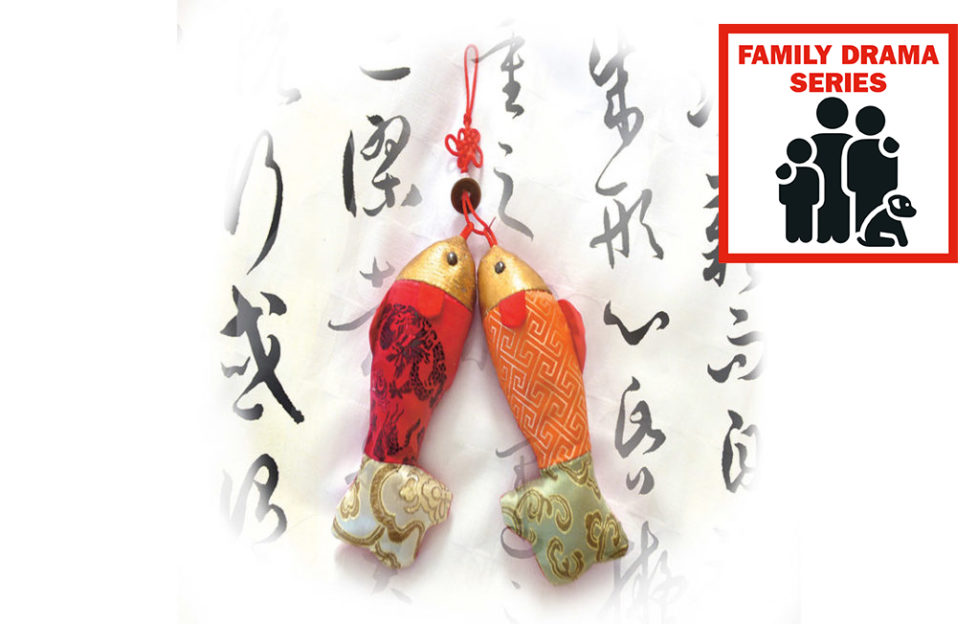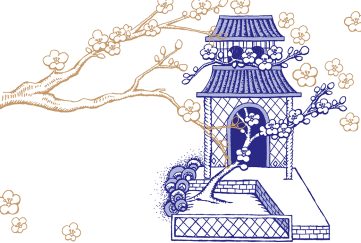Second Child

WRITTEN BY ROB NISBET
All her life she’d felt the heavy burden of responsibility…
Her mother was ill with a fever, lying on the curtained-off bed with Yi-Fei sitting at her side. Yi-Fei could feel the presence of her father, seated next to her, as a wave of resentment every time he looked at her.
He didn’t say anything; he was too aloof and reserved for that. Nothing but concern for his wife showed on his face, but Yi-Fei knew what he was thinking: that all their difficulties stemmed from the day that she had been born.
Yi-Fei felt the weight of responsibility which had slowly bent then crushed her over the years. It became easier for her if she avoided talking to her father. They had grown accustomed to communicating through her mother, who Yi-Fei deliberately used as a cushion to diffuse any antagonism between them.
This didn’t stop her parents arguing between themselves, and their quarrels always had Yi-Fei at their centre.
Now she and her father sat side-by-side by the bed; Yi-Fei imagined his bitterness grating the air between them.
She squeezed her mother’s hand and felt the faint pressure of a response…
Mum had endured a hard life but she was a fighter.
Though her father had worked, and continued to work even now, beyond retirement – there had never been enough money to provide for a family of four.
Yi-Fei remembered growing-up with no savings, the bulk of her father’s income just vanishing each month.
When she was old enough to understand, her mother had taken her to one side and told her why. They had to pay back the loan. The loan her father had arranged to pay the fine. The fine they had to pay because of her.
Yi-Fei felt the guilt every day. She felt it in their shabby hutong housing. In their communal shower and toilet further down the street. In the modern glass tower blocks rising around them – appearing to look down on her, judging, just like her father’s heavy eyes, red with worry.
Her father stroked a strand of still-dark hair from her mother’s damp forehead and managed a small smile for his daughter.
“You look old,” he said. “You should try to be brighter, more cheerful. It would lift your mother’s spirits.”
Despite his smile, his words stung
Yi-Fei was in her mid-thirties. When she looked at other women her age she saw that they used make-up. They’d shelter behind parasols to maintain a paler skin.
Yet Yi-Fei knew that she was different. She dressed to hide her figure with shapeless cotton, no flattering silks. She let the sun tan her unpainted face, and if the skin around her eyes dried into wrinkles, so much the better.
“I try to look older,” Yi-Fei told her father. She took a nervous breath. “So people might think I was born before 1981.”
She had never spoken to her father of this, and even admitting this in front of him made her feel ashamed.
He turned to face Yi-Fei and his eyes widened. She saw a genuine surprise in those eyes, and sympathy; an unexpected realisation of what had tainted Yi-Fei’s life for so many years.
He reached out to her hand where it lay over her mother’s. “Oh, Yi-Fei,” he said. “None of this is your fault.”
Yi-Fei’s first memories were of her parents arguing. They were totally different people. When she first heard the English expression “chalk and cheese” she immediately thought of her parents.
Her father was from the north, a teacher of English and tall, as people from the north tend to be; noodle people, tall and slim. Her mother was a typical rice person, shorter, round faced and from the south.
She looked so frail, now, as she lay in the bed, but as a younger woman she had been feisty and knew her own mind, always standing up to her husband when she disagreed with his traditional ways.
They argued about everything – having enough to eat, the poor condition of their single room with the bed curtained-off at one end, the education of their son and daughter.
Yi-Fei knew the true cause of their arguments
Yi-Fei could distil all their disagreements down to their lack of money, and always, in the barrage of shouting, the true cause of their problems seeped out.
Yi-Fei felt the weight of her father’s hand on hers and saw the pain in his eyes as he realised how Yi-Fei had suffered.
“I am the second child,” she said.
She felt the relief of the words, as if she’d set the admission free into the world. She had an elder brother. It was like having to admit that her parents weren’t married. It was not her fault that she was a second child, but she felt the stigma which followed her everywhere.
As soon as people found out she was born in 1981 she could feel their stares boring into her back. She flouted the one child policy, she should not exist.
Her father squeezed her hand and in that touch of his fingers Yi-Fei felt the unfamiliar love that had been hidden behind the struggle of their daily lives.
She remembered how he had passed on his knowledge of English. Schooling had been denied to her and her brother as part of their family’s punishment. They listened, illegally, to the radio school, intended for children living in the remote mountainous regions, and her father passed on the only skill he could.
Yi-Fei’s English had earned her a job showing tourists around Beijing, explaining to them the history of the Great Wall and Forbidden City.
Her brother now worked as an interpreter in Shanghai, translating for big businesses. He left home as soon as he was able. Even this, Yi-Fei felt, was her fault; leaving just one child at home gave the appearance of a normal, legitimate family.
“I’m sorry,” said her father. “I didn’t realise how keenly you felt responsible. If anyone was to blame, it should be me.”
Discovering that his wife was pregnant, Yi-Fei’s father had insisted on a termination. Perhaps she had been too young at the time to cope with this truth. It was the belief that she was not wanted that had so twisted Yi-Fei’s life from that moment on.
Her father had insisted that they were breaking the law and the penalties were severe. As a teacher he would lose his job, how would they survive? They’d lose their right to free schooling for both children. Was it morally right to have a second child?
Yi-Fei’s mother had ignored his protests, accused him of kowtowing to the government and fretting over his precious job. She packed and moved out to live with her parents in the hills until the baby was born.
When she returned to their modest home, a new daughter in her arms, they hoped to keep their secret. Despite their traditional raised step to keep out evil spirits, the officials arrived the next day.
Yi-Fei’s father was lucky
Yi-Fei’s father had pleaded to keep both the baby and his job. He was lucky; in those early days the second child penalties were not so strictly enforced. As a teacher back then he earned just ten Yuan per month. After much negotiation, the authorities allowed them to keep the child and they were fined a crippling three years’ wages.
Yi-Fei was surprised by her father’s understanding smile.
“My fault,” he repeated. “Not yours.”
Yet Yi-Fei could not relinquish the blame so easily; not after so many years.
“If you hadn’t kept me,” she said, “your lives would have been so much easier. You wouldn’t have been so poor.”
“No,” her father’s voice was firm. “We may have had money, but we’d have been poorer without you.”
Yi-Fei’s mother stirred in the bed as if to confirm what her father had said – for once agreeing with him.
“We argued when life became difficult,” he continued. “Your mother and I are completely different people; some might say incompatible. I wonder if we’d have stayed together if we didn’t have our shared troubles to battle through. If you must blame yourself for anything, Yi-Fei, blame yourself for that. It’s your fault that we are still a family.” His smile became serious. “I thank you for that.”
Yi-Fei’s mother managed to nod her agreement, the fever seemed to be passing. She was still a fighter.
It occurred to Yi-Fei then how much she was wanted. What she had measured as the family’s suffering was actually a measure of how much they were prepared to endure to keep her.
She felt a warmth in her hand, sandwiched between those of her parents.
“Be proud that you’re our second child,” said her father. “We are.”




